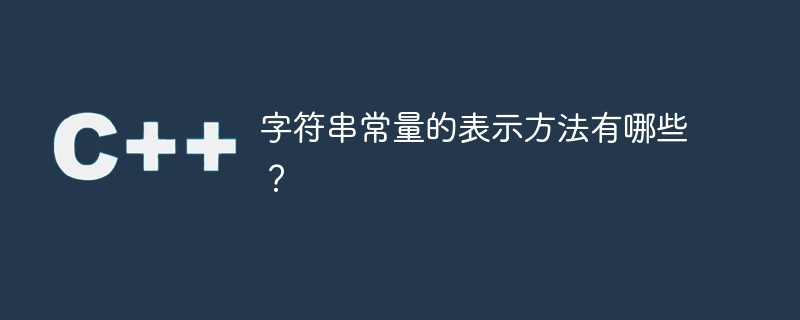

String constants are fixed text values used in programs. There are different ways to represent string constants in most programming languages. The following will introduce some common string constant representation methods and give specific code examples.
Single quote notation: In some programming languages, characters enclosed in single quotes can be used to represent string constants. This representation is typically used to represent a single character.
char ch = 'A';
Double quote notation: In most programming languages, double quotes are used to represent string constants. Double quotes can enclose one or more characters.
String str = "Hello, World!";
Escape character representation: Escape characters are used to insert special characters into strings, such as newlines, tabs, quotation marks, etc. Escape characters are usually represented using a backslash () followed by a specific character.
String str = "Hello World!"; // 在Hello和World之间插入换行符 String path = "C:\Program Files\"; // 插入反斜杠
Unicode representation: Unicode is an encoding standard used to represent all characters in the world. Unicode notation uses the u prefix followed by four hexadecimal digits to represent a character.
String str = "u4F60u597D"; // 表示中文的"你好"
Concatenation notation: Some programming languages allow longer strings to be represented by concatenating string constants. Multiple string constants can be concatenated together using the plus sign ( ).
String str = "Hello" + "World!"; // 将"Hello"和"World!"拼接在一起
The above are some common string constant representation methods. Different programming languages may have different syntax rules and features, but the basic concepts and methods are similar. Through these representation methods, programmers can use string constants in programming to implement various functions.
The above is the detailed content of What are the common representations of string constants?. For more information, please follow other related articles on the PHP Chinese website!




